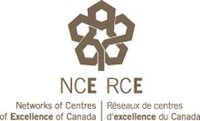The large industrial research lab is no longer the norm. Multinational firms now globally distribute their R&D and collaborate with partners in public and private sector institutions. How has this dramatic change affected public policies and how have policies affected private sector R&D and the corporate environment? Does the “new normal” offer opportunities to a country like Canada? Join RE$EARCH MONEY to discuss and debate the present reality and future of industrial R&D.
Industrial R&D: Is Canada Really Lagging?
Speakers, Panelists, and Moderators include
H. Douglas Barber
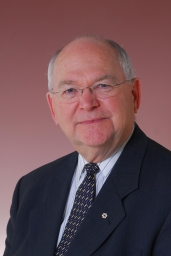
H. Douglas Barber, born on a Saskatchewan farm, attended the University of Saskatchewan obtaining his B.Sc. with Great Distinction, winning the Governor General’s Gold Medal, and a M.Sc. in Electrical Engineering. As an Athlone Fellow and NATO Scholar he received his Ph.D. from Imperial College, University of London in 1965. Dr. Barber began employment in 1965 in a new microelectronics initiative at Canadian Westinghouse, Hamilton, Ontario, Canada. In 1973 he was one of the founders of Linear Technology Inc., now known as Gennum Corporation, which designs, manufactures and markets microcircuits. Gennum has grown profitably at 20% per year and now employs about 650 people. Dr. Barber was President and CEO when he retired in 2000. He retired as a Director in 2007. Doug Barber was a part-time Engineering Physics Professor at McMaster University from 1968 to 1994. In 2001 he was appointed Distinguished Professor-in-Residence. He is a past Chair of the Board of Governors and recently has been designated an Honorary Governor. Dr. Barber also presently serves on various research boards, task-forces and committees at the University. The recipient of numerous awards and distinctions that honour engineering and entrepreneurial achievements, Dr. Barber was made an Officer of the Order of Canada recently awarded an Honorary Doctorate of Science from the University of Saskatchewan. Dr. Barber has been involved in numerous advisory committees and corporate directorships, including director of DALSA Inc. from 2005 to 2008, NetAccess Systems Inc. since 1994 to 2009. He also is presently a director of Micralyne since 1997, AllerGen NCE Inc. since 2003, and The Institute of Quantum Computing since 2006. In 2009 Dr. Barber joined the Boards of the Centre for Probe Development and Commercialization, the Centre for Surgical Innovation and Invention and the IRAP Advisory Board. Dr. Barber has authored 29 refereed papers and several patents. He speaks frequently on business, technology, learning, innovation and economic development. He and his wife, June, have raised a family of four whose families now include ten grandchildren. He is a man of faith with over 37 years of active involvement in their church.
Bill Buxton
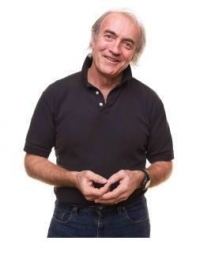
Bill Buxton is a relentless advocate for innovation, design, and – especially – the appropriate consideration of human values, capacity, and culture in the conception, implementation, and use of new products and technologies. In December 2005, he was appointed Principal Researcher at Microsoft Research. Prior to that, he was Principal of his own Toronto-based boutique design and consulting firm, Buxton Design.
Buxton began his career as a composer and performer, having done a Bachelor of Music degree at Queen’s University. He then studied and taught for two years at the Institute of Sonology, Utrecht, Holland. In 1975 Bill started designing his own digital musical instruments. This is what led him to the University of Toronto, where he completed an MSc in Computer Science, and subsequently jointed the faculty. It is also the path that brought him into the field of human-computer interaction. From 1987-89, Buxton was in Cambridge England, helping establish a new satellite of Xerox’s Palo Alto Research Center (EuroPARC). From 1989-94 he split his time between Toronto, where he was Scientific Director of the Ontario Telepresence Project, and Palo Alto, California, where he was a consulting researcher at Xerox PARC. From 1994 until December 2002, he was Chief Scientist of Alias|Wavefront, (now part of Autodesk) and from 1995, its parent company SGI Inc. In the fall of 2004, he became a part-time instructor in the Department of Industrial Design at the Ontario College of Art and Design. In 2004/05 he was also Visiting Professor at the Knowledge Media Design Institute (KMDI) at the University of Toronto. He currently splits his time between Redmond and Toronto. In 1995, Buxton became the third recipient of the Canadian Human-Computer Communications Society Award for contributions to research in computer graphics and human-computer interaction. In 2000 he was given the New Media Visionary of the Year Award at the Canadian New Media Awards. In 2001, The Hollywood Reporter named him one of the 10 most influential innovators in Hollywood. In 2002, Time Magazine named him one of the top 5 designers in Canada. Also in 2002, he was elected to the CHI Academy. In October, 2005, he and Gord Kurtenbach received the “Lasting Impact Award”, from ACM UIST 2005, which was awarded for their 1991 paper, Issues in Combining Marking and Direct Manipulation Techniques. In 2008 he became the 10th recipient of the ACM SIGCHI Lifetime Achievement Award, “for fundamental contributions to the field of Computer Human Interaction.” In 2009 he was elected Fellow of the Association of Computing Machinery (ACM), for his contributions to the field of human-computer interaction. Buxton has been awarded three doctorates Honoris Causa: Doctor of Design from the Ontario College of Art and Design, Toronto, Ontario (June, 2007), Doctor of Laws from hi his alma mater, Queen’s University, Kingston Ontario (June, 2009), and Doctor of Industrial Design, from the Technical University of Eindhoven, The Netherlands (Nov. 2009). From 1998-2004, Buxton was on the board of the Canadian Film Centre, and in 1998-99 chaired a panel to advise the premier of Ontario on developing long term policy to foster innovation, through the Ontario Jobs and Investment Board. He is on a number of academic advisory boards, the Department of Industrial Design of the Technical University in Eindhoven, the Netherlands. Buxton is a member of the Association of Computing Machinery and the Industrial Designers Society of America.
Peter Carbone
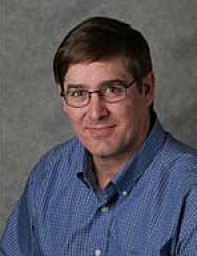
Tom Corr
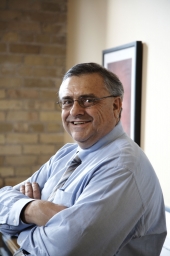
David Crane
Jeffrey Crelinsten

Jeffrey Crelinsten is CEO of Research Money Inc. and publisher of RE$EARCH MONEY. He is also President and CEO of The Impact Group, a consultancy he co-founded in 1987, specializing in science, technology and innovation policy, communications and education. Jeffrey has been studying challenges facing tech entrepreneurs and the innovation ecosystems that try to support them for over 25 years. He developed the R$ conferences to bring together leaders from the private and public sector to address critical issues around innovation policy and knowledge-based commerce.
Before founding The Impact Group, Jeffrey taught science and human affairs at Concordia University and had an active career as a science documentary writer for radio and television.
Jeffrey is Senior Research Fellow at the Innovation Policy Lab, Munk School of Global Affairs, University of Toronto. He is a founding director of the International Commercialization Alliance and is a past-President of the Canadian Science Writers Association. Jeffrey has a B.Sc. in physics from McGill University, a M.Sc. in astronomy from University of Toronto and a Ph.D. in history of science and science policy from University of Montreal.
Morgan Elliot

Ron Freedman
Fred Gault
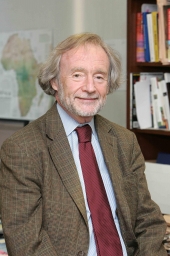
Fred Gault is a member of the management team working on the OECD Innovation Strategy to be released in June 2010. For two decades he was responsible for science, technology and innovation statistics at Statistics Canada and during that time he chaired the OECD Working Party on Indicators for the Information Society (1997-2002) and the Working Party of National Experts on Science and Technology Indicators (NESTI) (2002-2008). After Statistics Canada, he joined the International Development Research Centre (IDRC) in Ottawa as a Visiting Fellow and worked on the place of innovation indicators in the development agenda before moving to UNU-MERIT where he manages IDRC funded projects on innovation in Africa. Currently, he is Professorial Fellow at the United Nations University MERIT in the Netherlands and Professor Extraordinaire at the Tshwane University of Technology in South Africa. His book, Innovation Strategies for a Global Economy: Development, Implementation, Measurement and Management, published by Edward Elgar, jointly with IDRC, will be released in July 2010.
Robin Harkness
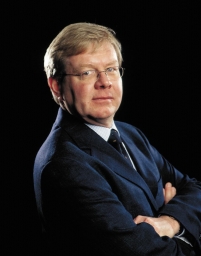
Raymond Leduc
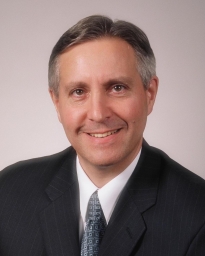
Raymond Leduc is Director and Senior Location Executive with IBM Bromont where he leads a 2600 person high technology operation providing microelectronic solutions for IBM’s server products and major OEM customers. He held various management positions in engineering and finance before being named to head the plant in 2003. Raymond obtained both his B.Eng and M.B.A. from McGill University and recently completed a Directors Education Program from the Institute of Corporate Directors. He is a member of the National Research Council and Vice-Chair of the board of the Canadian Manufacturers and Exporters.
Nowlen Mahé
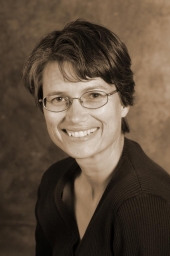
Nolwen Mahé is the Director for Montreal of the Office of the Chief Scientist (oCS). The oCS brings technology intelligence to SAP and is responsible for ensuring awareness and planning for critical technologies, especially externally driven ones from industry, academia, and customers, in isolation or through co-innovation. The oCS group in Montreal has a special interest in mobility and related technologies; a familiar area for Nolwen who spent most of her work life in the telecommunications domain. Over the past 25 years, Nolwen has been a developer, a product manager, a research director as well as a grass-roots entrepreneur. Her functional expertise spans the product lifecycle, organization of research, product/project management as well as productization and product marketing in an international setting. She gained her technical degrees at Institut National des Sciences Appliquées (INSA) and École Nationale Supérieure des Télécommunications (ENST), both in Rennes, France, and complemented them with an MBA at McGill University.
David Miller

David Miller graduated from The University of Toronto with a Bachelor of Applied Science in 1982 and is a member of the Professional Engineers Ontario (PEO). David joined The Woodbridge Group in 1983 and has progressed through a variety of technical and technical management positions culminating in his appointment as Senior Vice President, The Woodbridge Group, as well as President of XanaThane Chemical Business Unit.In addition to his role as head of technology for all business units globally, David has responsibility for Purchasing, Product Development, Product Design, Research and Development, Facility and Machinery Engineering. He was instrumental in forming and expanding a tool and die-making business. David has experience as a director on several boards, currently and historically, including European, Asian and India-based enterprises. David lives in Bolton, Ontario with his wife, Pat, and two children.
Penny Park

Jim Roche

Sam Stevens
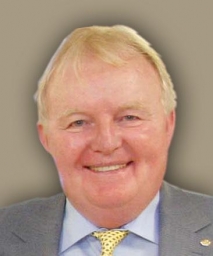
Sam Stevens is Executive Director for the Ontario region of the National Research Council’s Industrial Research Assistance Program (NRC-IRAP). He has overall responsibility for delivery of a $100 million program in the Ontario Region, involving a staff of 85 located in 32 offices across the Province. Prior to assuming his current position in 2007, he was a Regional Director in both the Atlantic and Ontario Regions between 2001 and 2007. Sam has extensive North American experience in executive roles ranging from President & CEO, Vice President, and Executive Director in both small private and large public technology based corporations. Two of these firms were start-ups, which he brought to a multi-million dollar sales level, prior to them being acquired by larger firms.In an earlier stage of his career, Sam also worked as a research scientist and research manager in Environment Canada and the Ontario Ministry of the Environment respectively. Sam holds a Bachelor of Science in Chemistry from Mount Allison University in Sackville, a PhD in Chemistry from University of New Brunswick, and he did Post-Doctoral research at the Universite de Bordeaux in France, and received a Business Management Certificate from Duquesne University in Pittsburgh, Pennsylvania. He has authored and co-authored 60 scientific publications and reports. He is also inventor or co-inventor of 14 patents, one of which is generating tens of millions of dollars per year for the assignee firm.
Janet Walden
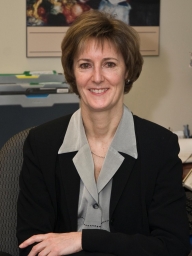
Janet Walden is the Vice President responsible for the Research Partnerships Programs with the Natural Sciences and Engineering Research Council of Canada (NSERC). Janet began her career working in the forestry industry, as an environmental chemist. In 1982, she joined NSERC and since 1997 has been Vice President for Research Partnerships. Janet is responsible for creating and evolving a highly successful spectrum of national policies and partnership programs designed to stimulate increased public-private collaborations and technology transfer, and maximize the benefits to Canada of university research. She has 25 years of experience in leadership positions with NSERC, including 7 years as Director of the Networks of Centres of Excellence. Under her guidance, NSERC’s partnership initiatives have grown to over $180M per annum involving more than 3,600 university researchers and over 1,400 companies annually.
Conference Program
Day 1 - March 25, 2010
Registration and Breakfast
Welcome and Opening Remarks
Jeffrey Crelinsten, Co-Publisher, RE$EARCH MONEY
Opening Keynote: Bill Buxton, Principal Researcher, Microsoft "Canada's Policy Conundrum"
Bill Buxton, Principal Researcher, Microsoft Research
Keynote: Fred Gault, Professorial Fellow, United Nations University MERIT, Professor Extraordinaire, Tshwane University of Technology, South Africa "Canada’s Industrial R&D Performance"
Fred Gault, Professorial Fellow, United Nations University MERIT and Professor Extraordinaire, Tshwane University of Technology, South Africa
Networking Break
Panel 1: The Changing Nature of Industrial Research
Moderator: Peter Carbone, Coral, CEA
Raymond Leduc, Director, Bromont Manufacturing, IBM Canada
Nowlen Mahé, Director, Montreal Office of the Chief Scientist, SAP
David Miller, Senior VP, The Woodbridge Group
Lunch
Keynote: H. Douglas Barber, Distinguished Professor-in-Residence, McMaster University and former CEO & Co-Founder, Gennum Corporation "Why Firms Do R&D"
H. Douglas Barber, Co-founder and Former CEO, Gennum Corp and Distinguished Professor in Residence, McMaster University
Panel 2: Industry-University Collaboration
Moderator: Penny Park, Executive Director, Science Media Centre of Canada (SMCC)
Tom Corr, President & CEO, Ontario Centres of Excellence (OCE)
Robin Harkness, Associate VP, Program Leader, Sanofi Pasteur
Janet Walden, Vice-President, Research Partnerships, NSERC
Networking Break
Panel 3: Policy Implications
Moderator: David Crane, Global Issues Columnist and Author
Morgan Elliot, Director, Government Relations, Research In Motion
Jim Roche, President and CEO, Stratford Managers Corporation
Sam Stevens, Executive Director, Ontario Region, NRC-IRAP
Conference Close
Ron Freedman, Co-Publisher, RE$EARCH MONEY




